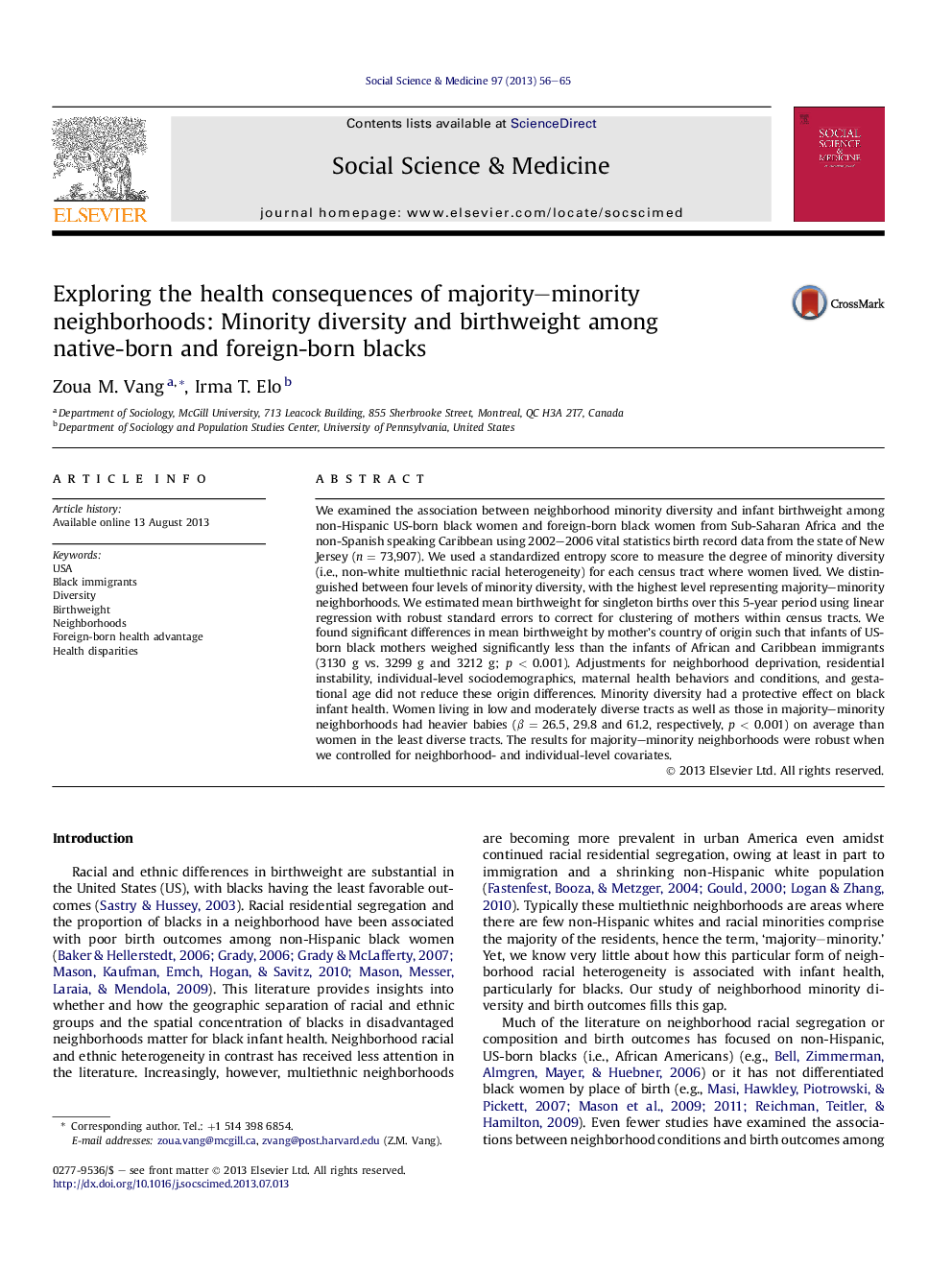| کد مقاله | کد نشریه | سال انتشار | مقاله انگلیسی | نسخه تمام متن |
|---|---|---|---|---|
| 7336413 | 1476071 | 2013 | 10 صفحه PDF | دانلود رایگان |
عنوان انگلیسی مقاله ISI
Exploring the health consequences of majority-minority neighborhoods: Minority diversity and birthweight among native-born and foreign-born blacks
ترجمه فارسی عنوان
بررسی عواقب سلامتی محله های اکثریت اقلیت: تنوع اقلیت ها و وزن تولدی در بین زنان سیاه پوست و متولدین خارجی
دانلود مقاله + سفارش ترجمه
دانلود مقاله ISI انگلیسی
رایگان برای ایرانیان
کلمات کلیدی
ایالات متحده آمریکا، مهاجران سیاه، تنوع وزن تولد، محله ها، مزایای استفاده از سلامت خارجی، تفاوت های بهداشتی،
موضوعات مرتبط
علوم پزشکی و سلامت
پزشکی و دندانپزشکی
سیاست های بهداشت و سلامت عمومی
چکیده انگلیسی
We examined the association between neighborhood minority diversity and infant birthweight among non-Hispanic US-born black women and foreign-born black women from Sub-Saharan Africa and the non-Spanish speaking Caribbean using 2002-2006 vital statistics birth record data from the state of New Jersey (n = 73,907). We used a standardized entropy score to measure the degree of minority diversity (i.e., non-white multiethnic racial heterogeneity) for each census tract where women lived. We distinguished between four levels of minority diversity, with the highest level representing majority-minority neighborhoods. We estimated mean birthweight for singleton births over this 5-year period using linear regression with robust standard errors to correct for clustering of mothers within census tracts. We found significant differences in mean birthweight by mother's country of origin such that infants of US-born black mothers weighed significantly less than the infants of African and Caribbean immigrants (3130 g vs. 3299 g and 3212 g; p < 0.001). Adjustments for neighborhood deprivation, residential instability, individual-level sociodemographics, maternal health behaviors and conditions, and gestational age did not reduce these origin differences. Minority diversity had a protective effect on black infant health. Women living in low and moderately diverse tracts as well as those in majority-minority neighborhoods had heavier babies (β = 26.5, 29.8 and 61.2, respectively, p < 0.001) on average than women in the least diverse tracts. The results for majority-minority neighborhoods were robust when we controlled for neighborhood- and individual-level covariates.
ناشر
Database: Elsevier - ScienceDirect (ساینس دایرکت)
Journal: Social Science & Medicine - Volume 97, November 2013, Pages 56-65
Journal: Social Science & Medicine - Volume 97, November 2013, Pages 56-65
نویسندگان
Zoua M. Vang, Irma T. Elo,
